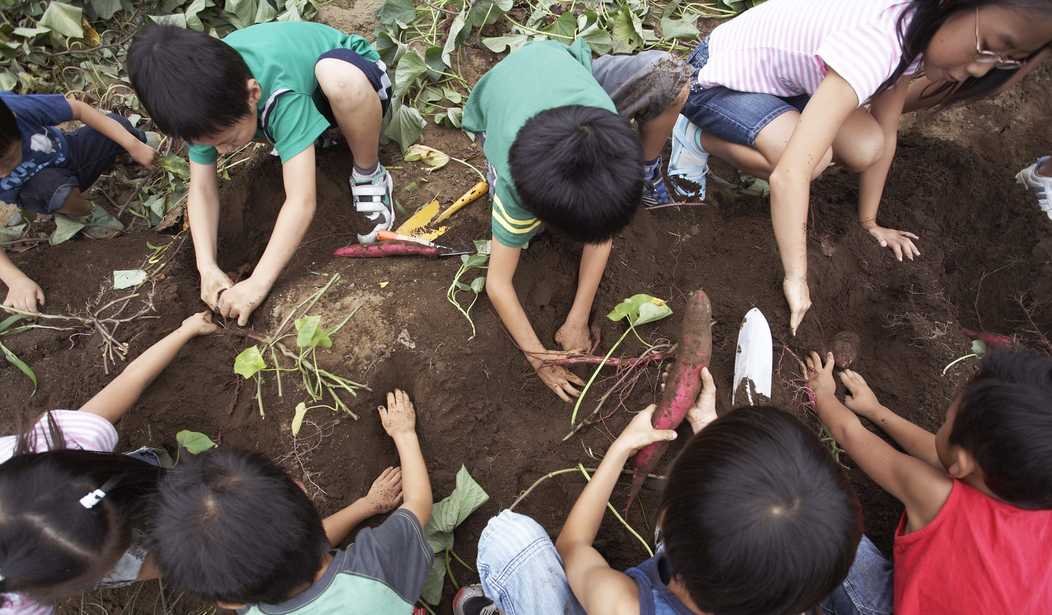In today’s Gospel, Jesus tells the familiar parable of the sower, in which seed spread on rocky ground, or among thorns, or on an unguarded path, all fail to adequately take root and yield a lasting harvest. The seed sowed on good soil, though — the Word of God received by someone both willing and conditioned to truly understand it — yields as much as a hundredfold of bounty.
Today’s version from Matthew doesn’t specify what qualities allow someone to “hear and understand” the Word, but the version of the parable in Luke does: “an honest and good heart.”
The question then becomes, how do we create an honest and good heart, one where the will exists, and the conditioning has been provided, so that the seed can find good soil, and thus that the Word can by truly understood, accepted, and lived by?
The usual answer, and a good one, is that we are responsible for creating good hearts, hearts loving and open enough to receive God’s Word, within ourselves. We cannot earn God’s grace, but we are responsible for our own hearts’ (and souls’) conditioning so that God’s grace has a chance to work within us.
Ultimately, I believe that to be true.
But it’s not the whole story. Or at least sometimes it’s not the whole story.
Nothing specifically in this Gospel passage says this next part, but the Gospels as a whole manifestly do. The next part is that all of us together can, and indeed should feel a responsibility to, help create the conditions in which hearts can be well prepared. Farmers know that in many cases good soil must be watered, perhaps fertilized, and tilled. The soil does not do those things for or by itself.
We have a communal responsibility — not through any humanly (much less governmentally) enforced mandates or force, but through voluntary choice and action — to create an atmosphere where an openness to God’s Word, and His love, can be achieved.
In earlier of these weekly columns I have shared vignettes from the grade school I was lucky enough to attend, Trinity Episcopal School in New Orleans. Here’s another — one giving an example of how a community can create fertile soil.
In November of my first-grade year, playing a football pass-catching game our coach invented, I somehow dislocated my hip while diving for a catch. Of course a dislocated hip is a serious injury. I was in a body cast for weeks, and wheelchair-and-crutches-bound for months.
But once I did return to school when my cast was off, even before I got adept at using the crutches, every time “recess” or PE class came around (in other words, twice a day), the coach would walk across the street to my classroom and personally wheel my chair out to the field so I could watch him teach my classmates the then-unfamiliar game of soccer, and so I could feel part of the fun.
And every time I needed something I couldn’t readily reach, my classmates were eager to help me.
Perhaps most memorably of all, there was the task of getting to our daily 15-minute chapel services. The whole school, 300 strong, would walk from the school portion of campus all the way (it seemed like a long way) to where the church was, down a string of long-ish hallways. The church was upstairs — stairs that, from the school-hallways’ entrance rather than from the street entrance, were rather narrow and steep.
Even were I strong enough (as I later was, but not in the first few weeks) for rapid use of crutches, it would badly slow down the proceedings if they waited for me to navigate the hallways and the stairs.
The obvious way to go was via wheelchair through an “undercroft” hallway beneath the church, and thence to a back elevator used by the elderly.
And what happened was that the student council — this, meaning the council of the “upper school” students, from 5th-8th grade — asked if they could set up a system to get this little first grader to chapel. They created a list where 5th-and 6th-grade boys could sign up to collect me in my first-grade classroom and push my wheelchair to the service.
Rarely has anyone seen such enthusiasm for what teachers thought would be a chore. Rather than a chore, indeed, the fifth-grade boys especially treated it as a privilege or something like it. The list was over-subscribed. The older kids bartered and traded each other for the “right” to take me to chapel. And then they vied with each other to see who could make the little trip more “fun” for me (with crazy zig-zags, a few no-hands pushes, etc.) than the last guy did.
For a first grader who might otherwise have felt down on his luck, this was an attitudinal cure. All this supportive, positive attention from older kids made my recovery not a grind but an adventure. And to have it associated with a chapel service … well, what better way to inculcate in a young mind the connection between faith and happiness?
Not just for me — although I think especially for me, because of this experience — Trinity School tilled the spiritual soil of its students so we all could be more open to God’s loving Word. Yes, perhaps it took our own willingness to be receptive — but the tilling was done by others, by the wider community.
All of us should be, like those fifth-grade boys, voluntary and eager tillers of communal soil, so that God’s Word may fall on receptive ground.









Join the conversation as a VIP Member